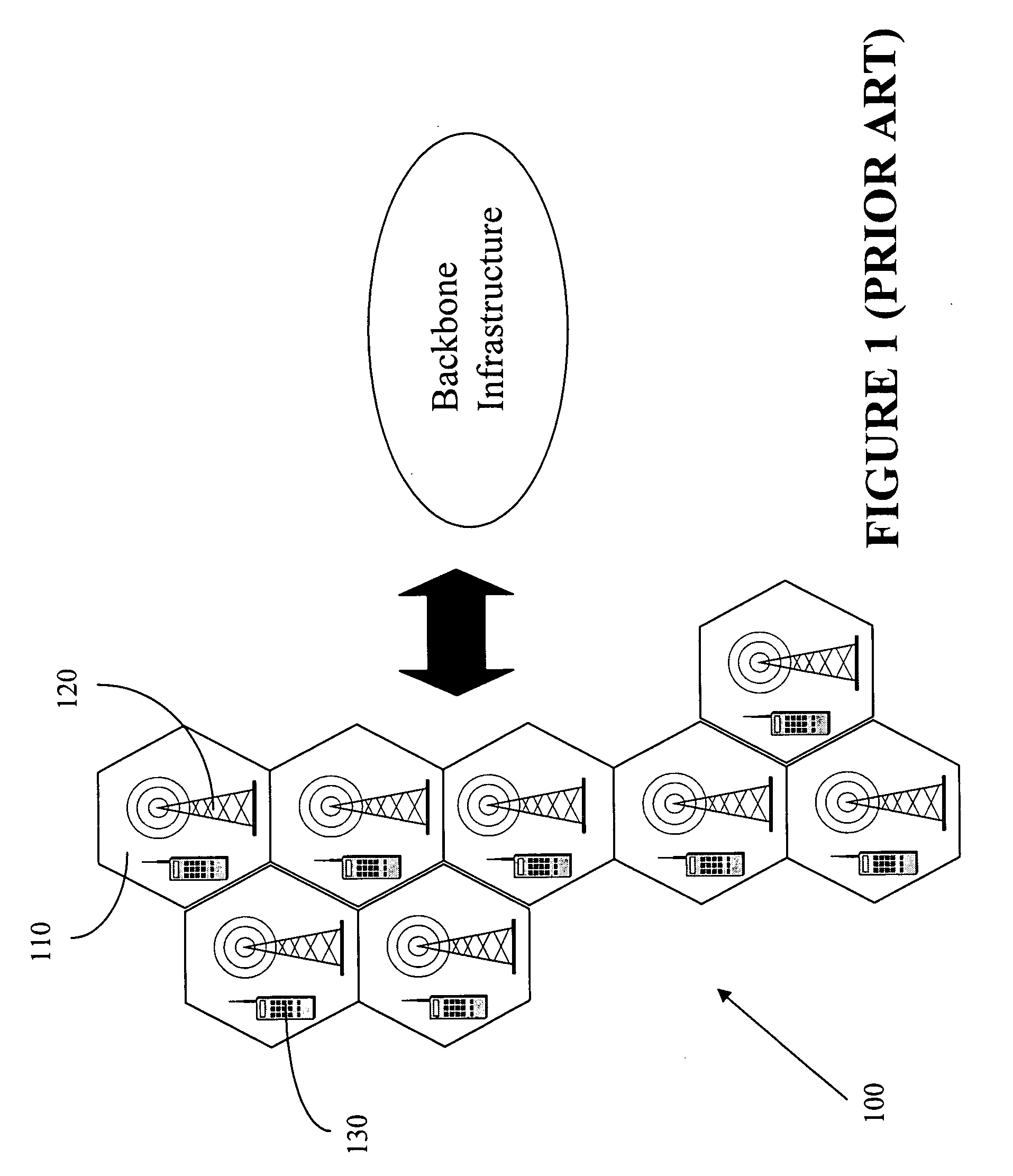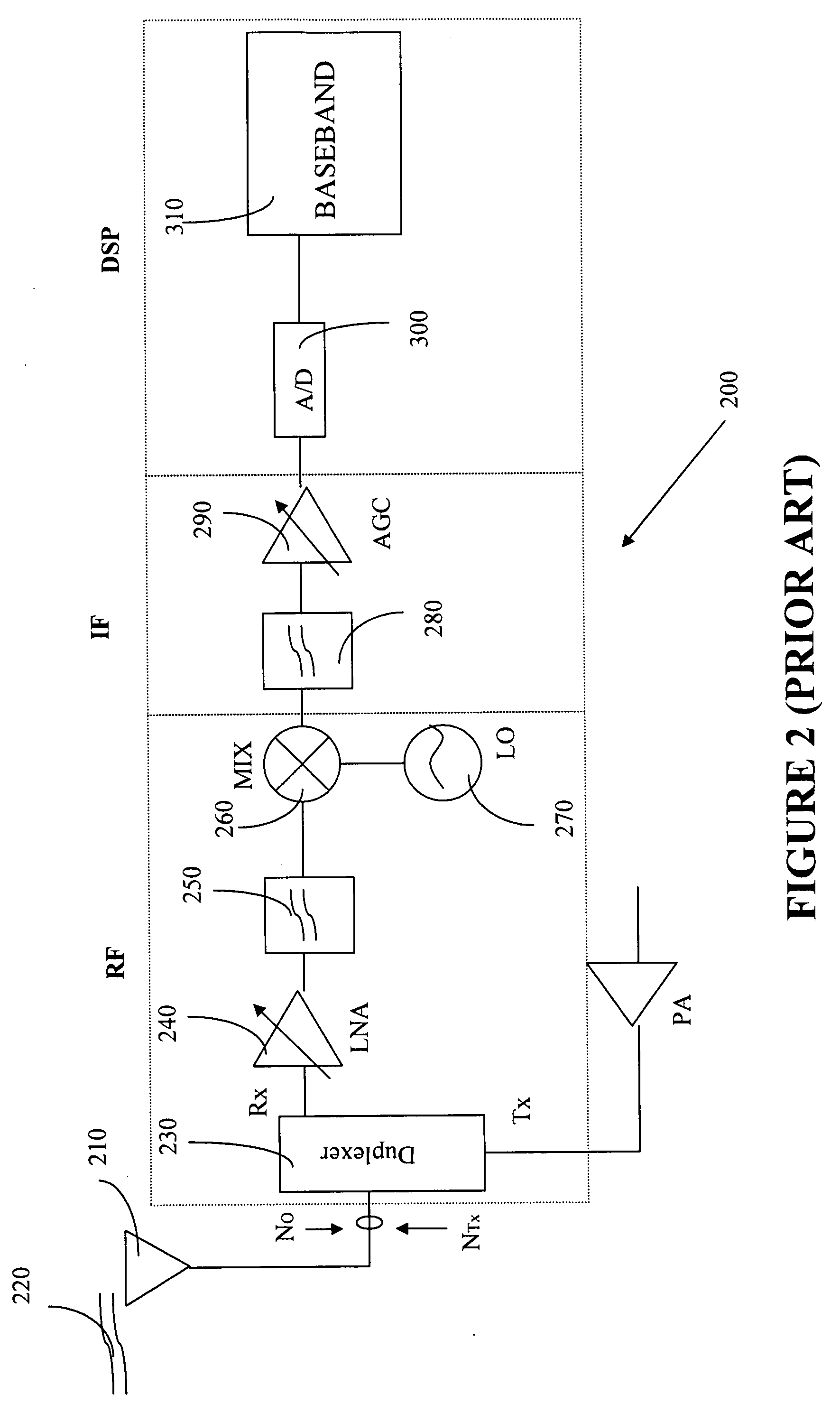Method of using snr to reduce factory test time
a technology of factory test and snr, applied in the field of wireless networks, can solve the problems of prohibitive test time and associated cost in man hours, too long test time for mass production, and inability to reduce the test time using the correlated energy or snr technique, etc., and achieve the effect of significantly reducing the test tim
- Summary
- Abstract
- Description
- Claims
- Application Information
AI Technical Summary
Benefits of technology
Problems solved by technology
Method used
Image
Examples
Embodiment Construction
[0030]The first step in the testing methodology, is the energy or SNR and FER characterization. As those in the art will appreciate, one of the main advantages of CDMA systems is the capability of using signals that arrive in the receivers with different time delays. This phenomenon is called multipath. As discussed in the background section, CDMA wireless devices may use RAKE receivers located in baseband processor 310. A RAKE receiver uses several baseband correlators to individually process several signal multipath components. Each correlator in a RAKE receiver is called a RAKE-receiver finger. One of the receivers (fingers) usually is a dedicated channel searcher which obtains course estimates of the time and amplitude of arrival of the strongest multipath components of the wireless device signal. This information is then fed to the other fingers. Each finger then demodulates the signal corresponding to a strong multipath. The results are then combined together to make the signa...
PUM
 Login to View More
Login to View More Abstract
Description
Claims
Application Information
 Login to View More
Login to View More - R&D
- Intellectual Property
- Life Sciences
- Materials
- Tech Scout
- Unparalleled Data Quality
- Higher Quality Content
- 60% Fewer Hallucinations
Browse by: Latest US Patents, China's latest patents, Technical Efficacy Thesaurus, Application Domain, Technology Topic, Popular Technical Reports.
© 2025 PatSnap. All rights reserved.Legal|Privacy policy|Modern Slavery Act Transparency Statement|Sitemap|About US| Contact US: help@patsnap.com



